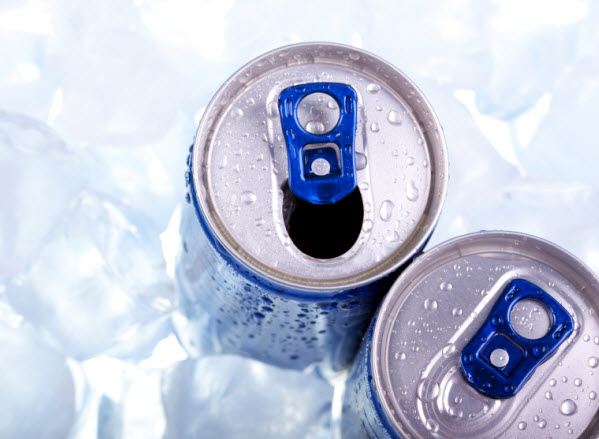Energy drinks are the latest trend in the beverage industry. First there were sodas, then diet sodas, and now energy drinks. Don’t be fooled– they are really just sodas with larger doses of caffeine! Claims that they improve athletic performance, stamina, and mental alertness are simply clever marketing ploys. Caffeine is categorized as a stimulant, however, the effects vary greatly among people, and the body develops a tolerance to it (i.e., over time, it will take larger quantities to achieve the desired effect). It is also important to know that caffeine in excessive amounts can be lethal. Many energy drinks do not reveal the amount of caffeine contained. Some brands have been shown to contain total quantities of caffeine in excess of 500mg, which is more than 14 cans of regularly caffeinated soda!
One reason to be aware that energy drinks are nothing more than high-caffeine sodas is that sodas offer no nutritional value. One might think that at least it’s liquid, so it can be considered hydrating – but in fact, they do the opposite. The caffeine causes increased urination and, therefore, can potentially lead to dehydration. Dehydration is an important health concern as it can lead to death in severe cases. Water is sufficient and ideal for rehydrating in the majority of situations. However, if the athlete is competing at a high level or there are other factors (e.g., excessive heat), then sports drinks containing some carbohydrates and electrolytes are important for proper hydration. Some examples of such sports drinks are Gatorade and Powerade.
The American Academy of Pediatrics discourages caffeine for children and adolescents. The health risks of caffeine include: difficulty sleeping, anxiety, and abnormal heart rhythms, among other adverse effects. These adverse effects can be considerably exacerbated in certain circumstances, such as dehydration, combination with other caffeine-containing substances, and alcohol use.
If you are constantly feeling tired or are looking to increase your energy, you should make an appointment with your doctor to investigate possible causes of your symptoms and devise a healthy, safe plan for boosting your energy.
Resources:
Clinical Report–Sports Drinks and Energy Drinks for Children and Adolescents: Are They Appropriate? COMMITTEE ON NUTRITION AND THE COUNCIL ON SPORTS MEDICINE AND FITNESS DOI: 10.1542/peds.2011-0965
Pediatrics; originally published online May 29, 2011;



